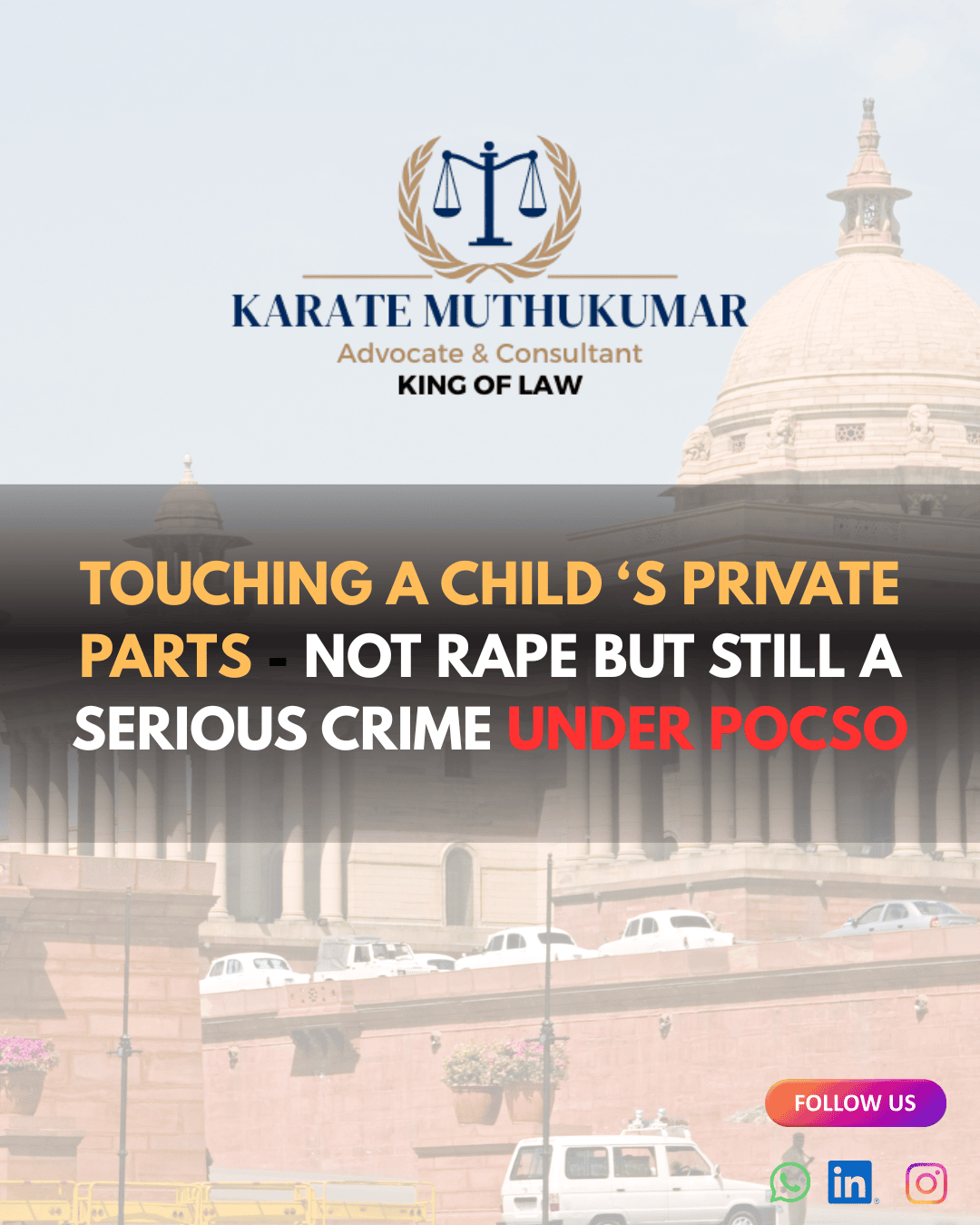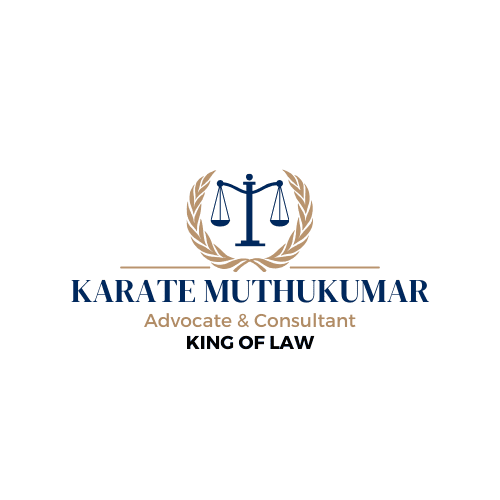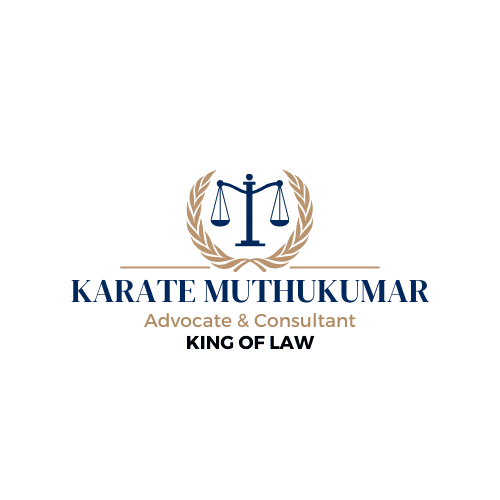When it comes to children, the law in India is very strict. The POCSO Act (Protection of Children from Sexual Offences Act, 2012) was made to keep kids safe from sexual abuse.
But many people get confused. They think any wrong act with a child is called rape. The Supreme Court has made it clear that this is not always the case

What Did the Supreme Court Say?
If there is penetration (even a little) into the private parts of a child → it is called rape under POCSO.
If there is no penetration, but only touching, rubbing, fondling, or groping private parts → it is called sexual assault, not rape.
👉 In simple words:
Penetration = Rape
Touching = Sexual Assault
If there is penetration (even a little) into the private parts of a child → it is called rape under POCSO.
If there is no penetration, but only touching, rubbing, fondling, or groping private parts → it is called sexual assault, not rape.
👉 In simple words:
Penetration = Rape
Touching = Sexual Assault
Why Does the Law Make This Difference?
The law makes this difference because the punishments are different:
Rape → Very strict punishment (minimum 20 years to life imprisonment, sometimes even death in rare cases).
Sexual assault (touching) → Strict punishment too (3 to 7 years in jail, plus fine).
So, both are serious crimes, but the law uses different names and punishments depending on the act.
The law makes this difference because the punishments are different:
Rape → Very strict punishment (minimum 20 years to life imprisonment, sometimes even death in rare cases).
Sexual assault (touching) → Strict punishment too (3 to 7 years in jail, plus fine).
So, both are serious crimes, but the law uses different names and punishments depending on the act.
For Parents and Families
Even if it is not legally called “rape”, touching a child’s private parts is still a crime and should never be taken lightly.
Teach children about “good touch” and “bad touch” in simple language.
Encourage kids to talk openly if they feel uncomfortable.
Believe the child and report the matter immediately — the law is on your side.
Even if it is not legally called “rape”, touching a child’s private parts is still a crime and should never be taken lightly.
Teach children about “good touch” and “bad touch” in simple language.
Encourage kids to talk openly if they feel uncomfortable.
Believe the child and report the matter immediately — the law is on your side.
Final Takeaway
The Supreme Court’s message is clear:
Not every wrong act with a child is called rape.
But every wrong act is a crime under POCSO, whether rape or sexual assault.
👉 In short: Touching is a crime. Penetration is rape. Both are punishable.
Children must be protected, and it is society’s duty to stay alert and supportive
The Supreme Court’s message is clear:
Not every wrong act with a child is called rape.
But every wrong act is a crime under POCSO, whether rape or sexual assault.
👉 In short: Touching is a crime. Penetration is rape. Both are punishable.
Children must be protected, and it is society’s duty to stay alert and supportive

